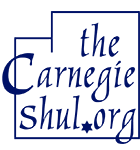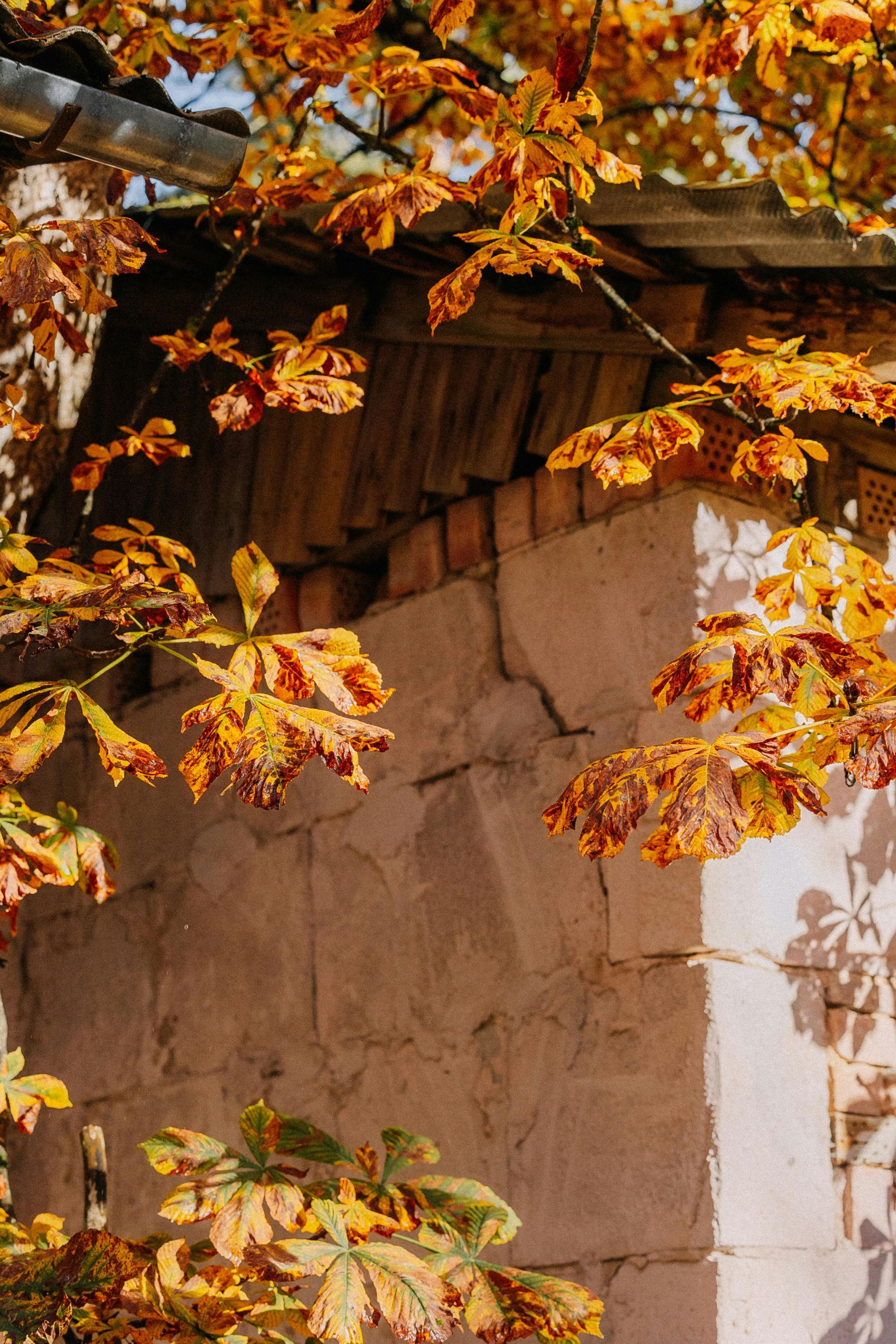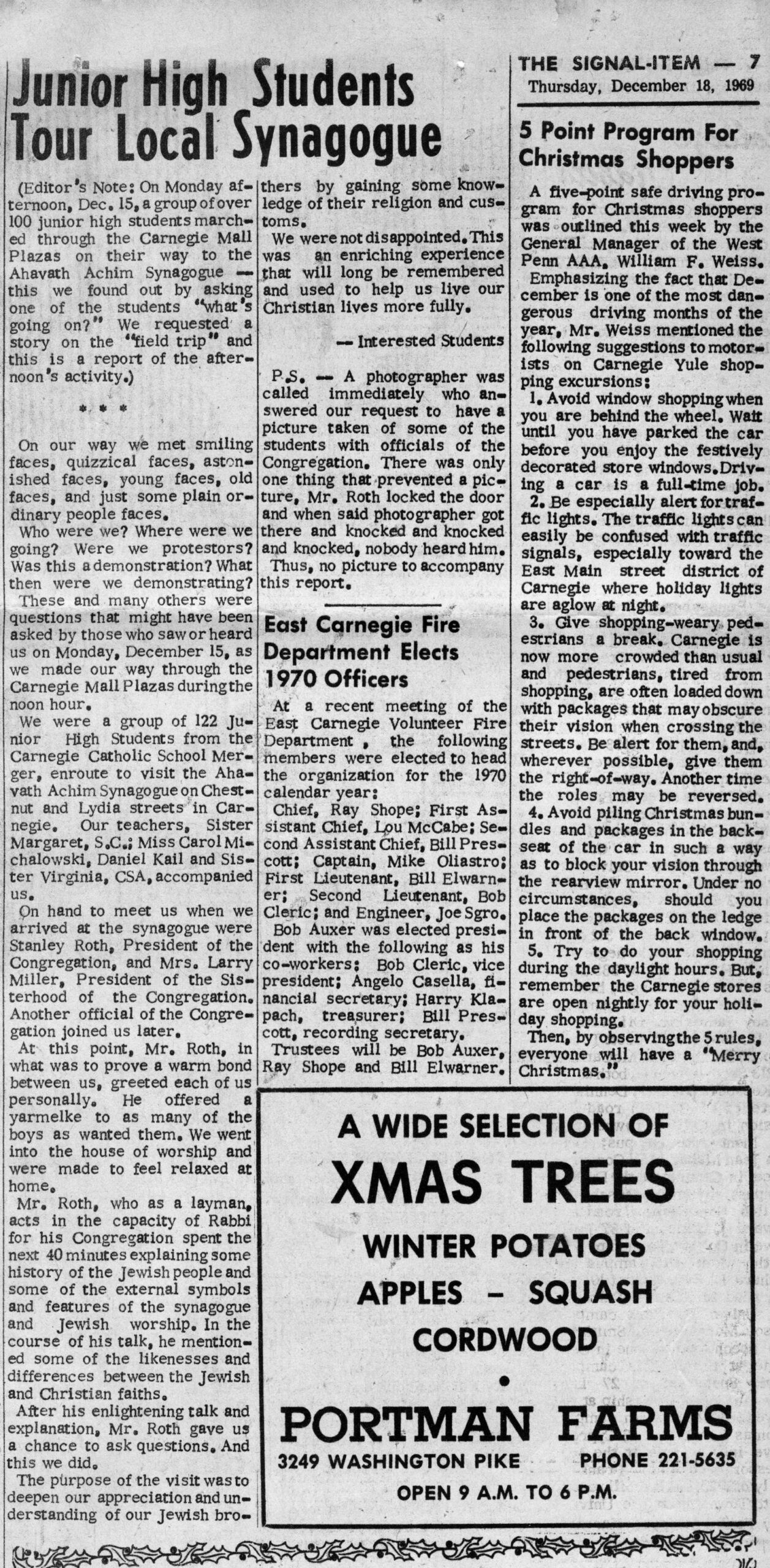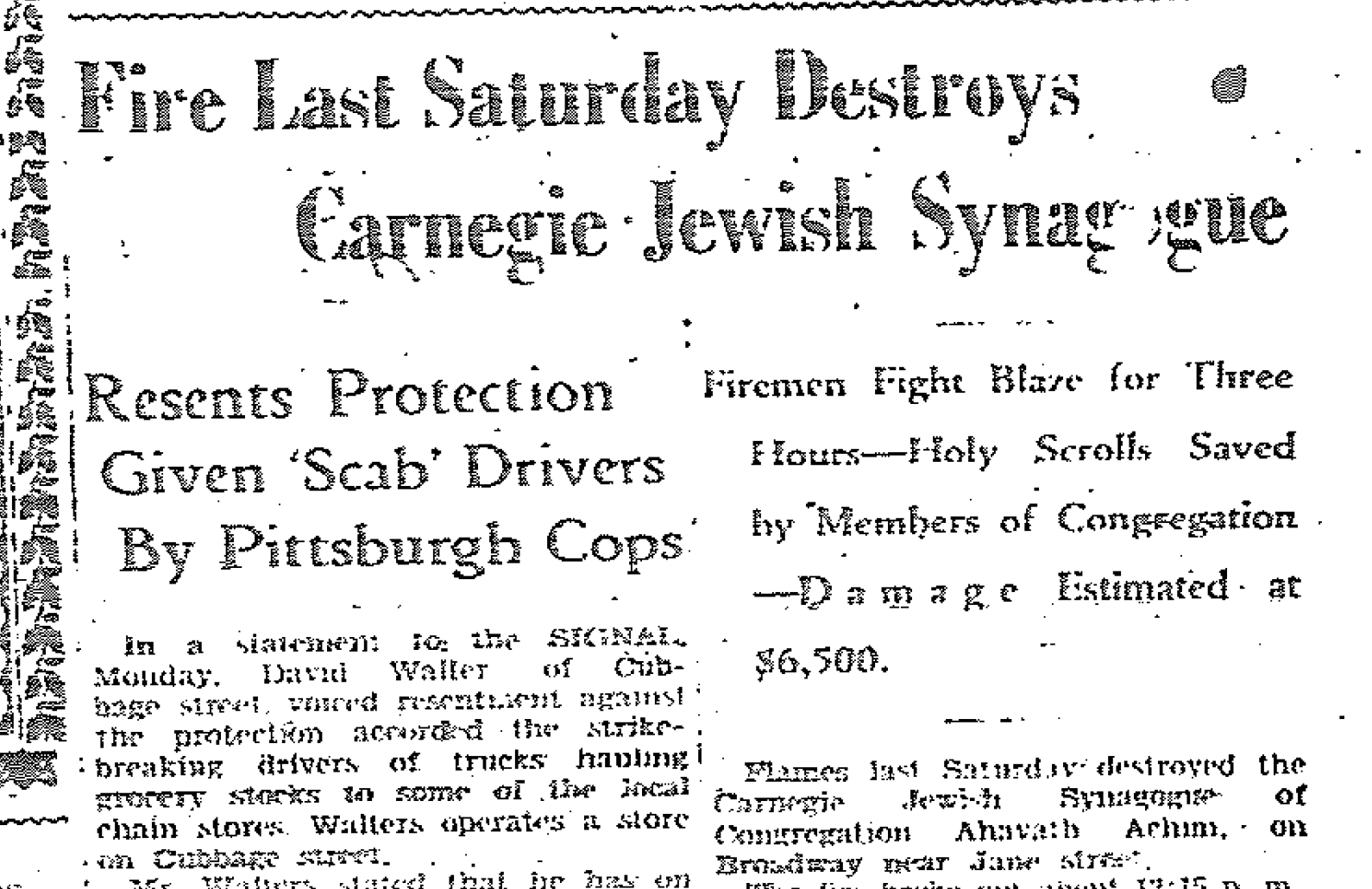The Carnegie Shul Prepares for the High Holidays and Celebrates More Than a Century of Tradition
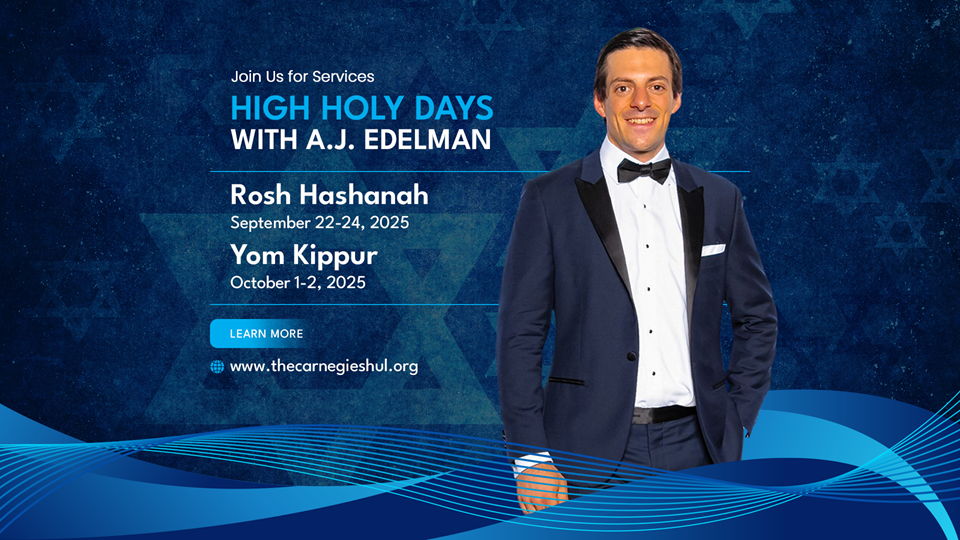
Carnegie, PA – September 11, 2025—The Carnegie Shul, founded in 1896 and incorporated in 1903, remains a cornerstone of Jewish life in the South Hills. As the
oldest congregation in the region, it reflects more than
125 years
of history, resilience, and community spirit.
High Holy Days Services: A.J. Edelman Returns
High Holy Days services at the Carnegie Shul will be held on
September 22–24 for Rosh Hashanah and
October 1–2 for Yom Kippur. The complete schedule is available at
www.thecarnegieshul.org/high-holy-days.
This year, services will once again be led by A.J. Edelman, a figure beloved by the congregation. "A.J. has been with us for about 8 years. He is a treasure that we have now," said Rick D'Loss, President of the Carnegie Shul. Edelman is renowned for his historic achievement as the first Orthodox Jewish athlete to compete in the Winter Olympics, inspiring many through his dedication to balancing athletic excellence with religious faith.
His leadership and spirituality continue to enrich the community, making his annual return as
shaliach tzibur a highlight of the Shul's holiday observances.
A History of Faith and Community
The Shul's roots stretch back to its founding families, including the Shermans, Millers, Wilks, Klees, and many others. "Starting in the late 1800s, Markus Sherman held services in his home," explained D'Loss. He led the formation of the congregation and organized the first high holidays services in 1896. We didn't even have a building; the first holiday services were conducted in the Husler building, the present home of the Carnegie Historical Society."
The congregation was incorporated in 1903 and built a shul on Broadway St. "When a fire destroyed that shul in 1934, it was decided not to rebuild on that small lot because the congregation was still growing," recalled D'Loss. A new and much larger synagogue opened on Lydia Street in 1937.
Leadership Across Generations
Over the years, leadership has passed through many dedicated families and has been sustained by many other families and members. "In addition to the Sherman family, the Wilk family provided three generations of shul presidents. D'Loss recalled, "Ike Peresman and Jean Perlman served as Treasurers for more than 70 years between them. Stanley Roth served as Secretary from around 1947 up until 2005 and passed in 2009. He was a huge figure in the congregation and we referred to him as Nusi, the Hebrew word for "prince"."
D'Loss said Dr. Larry Block, a retired professor from Duquesne University, continues to play a vital role. "He is an incredible, knowledgeable guy who has dedicated so much of his time and effort to this congregation over the past 40 years," said D'Loss. He was and still is a scholar. We rely on him for his knowledge of Torah and tradition. He's in his 80s and leads Torah study for us every week."
A Unique Congregational Identity
The Carnegie Shul is known for its strong traditions, welcoming nature, and independence. "We have not had a rabbi here since 1978, when Stanley Savage moved on to another shul. The congregation is unaffiliated. The term indie minyan is in vogue these days, but we've been an indie minyan for 50 years."
The Shul has an open-door policy for High Holidays. Most congregations limit High Holiday services to just their members, but in the history of the Carnegie Shul, we've never restricted admission.
"It's a pretty amazing testament to our place that people come, donate, and join because they appreciate what we offer and they want us to stay open. But their attendance and participation are their most important gift— a gift to both themselves and the community. The congregation is certainly smaller than it was in previous generations, but the ner tamid is still burning in Carnegie," D'Loss said.

